Animal Behaviour and Cognition
Over the course of the year 2020-21, Animal Behaviour and Cognition Programme members worked on various projects funded by national (DST, ISRO) and international (ERC) organisations. The major focus was to investigate drivers of human-primate conflicts, the impact of land use changes on human primate co-existence, object recognition and tool manufacture on wild bonnet macaques and behavioural ecology of lion-tailed macaques. Studies related to the urban ecologies of wild and feral species in Delhi and Guwahati, interactions between Asian elephants and human communities in southern India, the determinants of social decision making in a megafish Deccan Mahseer, people’s perceptions of endangered fishes and costs of human food choices were also carried out.

|
Sindhu Radhakrishna Professor and Head School: School of Natural Sciences and Engineering Programme: Animal Behaviour and Cognition Room no: S 23 +91-080-2218 5115 sindhu@nias.res.in, sindhu.radhakrishna@gmail.com |

Doctoral Student
Honorary Visiting Professor

Doctoral Student

Doctoral Student
Post-Doctoral Associate
DOCTORAL STUDENT

Doctoral Student

Doctoral Student

Doctoral Student

Doctoral Student
Doctoral Student

Post-Doctoral Associate

Doctoral Student

Doctoral Student

Professor

Doctoral Student

Doctoral Student

Doctoral Student

Doctoral Student

Associate Professor

Post-Doctoral Associate

Doctoral Student
| Primate Behaviourial Ecology Research studies in this area include population dynamics of lion-tailed macaques in the western ghats, intraspecific variation in the slender loris, the cognitive bases of object manipulation and tool manufacture by wild bonnet macaques, food object recognition by bonnet macaques, decision- making during crop-raiding by rhesus macaques, and mitigation techniques to address macaque crop-raiding behaviour. |
| Ethnoprimatology Projects that fall under subdisciplinary rubric address all aspects pertaining to the human-primate interface. Some of the more recent studies include exploring the representation of monkeys in regional literature, cultural and religious views of macaques, perceptions of people vis-à-vis problem primates, role of land use patterns in shaping human primate con flict and factors the drive the initiation and escalation of human-primate conflict. |
| Human-Elephant Interactions The studies on human- elephant relations focus on how elephants survive and persist in fragmented, in southern and northeastern India by adopting novel behaviourial strategies. |
| Piscine Behaviour and Conservation Projects under this theme cover topics such as behaviour of subterranean fishes, impact of anthropogenic activities on the survival status of indigenous fish, management of invasive fishes, and social decision making in megafishes. |
| Urban Ecologies These set of studies focus on a range of wild, feral and cultivated species in the Indian cities of Delhi and Guwahati and provides insights into what urbanisation might entail for these other than-human species. More specifically, the studies explore how etho-geographical understandings can potentially contribute to our understanding of the political ecologies of urbanization, .and its implications for urban design and development policies. |
| Other Research Other studies undertaken by Programme members include projects on the ecological costs of human food choices in India, cross-cultural musical exchanges in colonial India, sense making of warning messages broadcasted during cyclones, and the impact of COVID on science communication. All these studies are essentially cross-disciplinary in nature and involve collaborators from various disciplinary backgrounds from both within the institute and outside. |
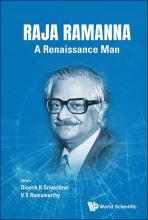
|
Anindya Sinha An Old Monk: Reminiscences of Raja Ramanna in NIAS, 1996–2004 https://www.worldscientific.com/worldscibooks/10.1142/14346?srsltid=AfmBOop06btz6SMIB8zGIA5x2rM1aABrUlOxt_fhXFlIqqXEdepWHjsh#t=aboutBook In: Raja Ramanna: A Renaissance Man (Edited by D K Srivastava and V S Ramamurthy), World Scientific, Singapore, pp. 215–224 In this intensely personal chapter of the commemorative volume on the late Raja Ramanna, I reflect on the remarkable individual that Dr Ramanna was and as I saw him during our years together in NIAS, from 1996 till his passing in 2004. I particularly celebrate his multifaceted personality, especially his relationships with the young faculty of the institute, his deep love for all living beings, and his inimitable sense of humour through which he saw the world. |
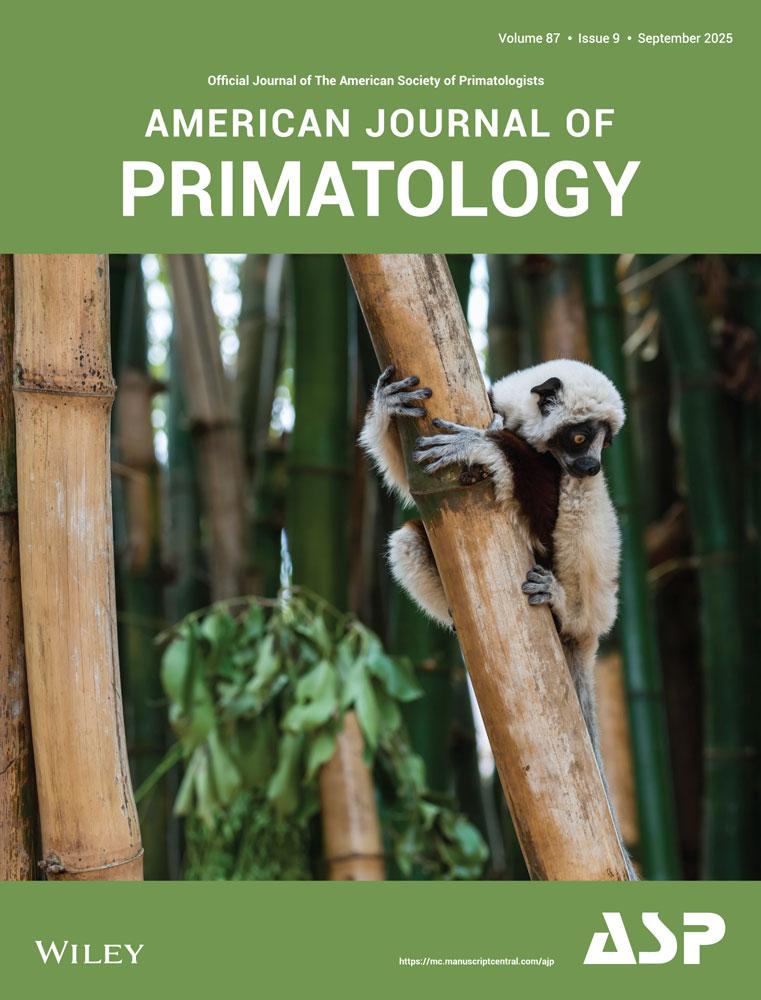
|
Anindya Sinha Population Dynamics of a Lion-Tailed Macaque (Macaca silenus) Population in a Rainforest Fragment in the Southern Western Ghats of India https://onlinelibrary.wiley.com/doi/10.1002/ajp.70075 Dhawale, A. K., & Sinha, A. (2025). Population Dynamics of a Lion-Tailed Macaque (Macaca silenus) Population in a Rainforest Fragment in the Southern Western Ghats of India. American journal of primatology, 87(9), e70075. Demographic analysis is often used for the effective management of wildlife, especially for species facing human‐caused disturbances to their habitat, such as habitat fragmentation. The objective of our long‐term study was, therefore, to gain insights into the status of a lion‐tailed macaque Macaca silenus population, inhabiting the Puthuthottam estate near Valparai in the Western Ghats of southwestern India. In this paper, we present a demographic history of five resident groups of this species, comprising 5% of the remaining wild lion‐tailed macaque populations and report a five‐fold increase in population size over a period of four decades. |
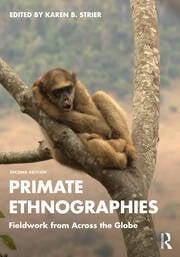
|
Anindya Sinha Anthropogenic histories, affective geographies: The macaques of urban India https://www.routledge.com/Primate-Ethnographies-Fieldwork-from-Across-the-Globe/Strier/p/book/9781032372686?srsltid=AfmBOoqQExG_wEMeTspqJ-TDXLeBsYBYX… In: Primate Ethnographies: Fieldwork from Across the Globe (ed. Karen B Strier), Routledge, New York, pp. 180-191 Multispecies ethnographies have begun to understand the sentient lives of nonhuman beings within increasingly human-dominated, ecological contexts of the Anthropocene, especially in India, where the close physical and emotional proximity of humans and macaques over centuries have led to intense interspecies behavioural exchanges and to slow, but irreversible, processes of synurbisation, wherein individual macaques have begun to adapt to urban ecologies. Drawing on our ongoing studies on the synurbisation of rhesus and bonnet macaque populations from across the country, I highlight, in this chapter, what living in altered socioecological environments might mean to both macaques and humans, and, in the process, reflect on the urban ecologies of our future. |
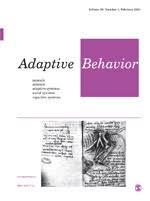
|
Anindya Sinha To Be or Not to Be Conscious: Reflections on the Phenomenological Complexity of the Macaque Mind https://journals.sagepub.com/doi/10.1177/10597123251356934 Sinha, A. (2025). To Be or Not to Be Conscious: Reflections on the Phenomenological Complexity of the Macaque Mind. Adaptive Behavior. One of the most difficult aspects of studying consciousness scientifically, particularly in other-than-humans, is to develop functional definitions for the phenomenon in non-verbal beings, wherein consciousness has to manifest itself in behavioural actions that can be unambiguously ascribed to being products of conscious states of the mind. In this paper, I offer glimpses into the phenomenologically complex minds of wild individual bonnet macaques Macaca radiata – a cercopithecine nonhuman primate endemic to peninsular India – examined through deep naturalistic observations of their cognitive decision-making processes. Such explorations, I believe, are critically important, in not only revealing the innovative responses of these cognitive beings to the pathological complexity presented by the socioecological realities of the everyday but also in uncovering the mechanisms by which these individuals may be able to ‘consciously’ synthesise their various subjective experiences to take novel decisions at different stages of their challenging life histories in the long term. |

|
Anindya Sinha Of Culture and Nature: Interdisciplinary Forays into Cultural Ecosystem Services through Human–Wildlife Relationships https://www.routledge.com/The-Routledge-Handbook-of-Cultural-Ecosystem-Services/McElwee-Allen-Gould-Hsu-He/p/book/9781032540467?srsltid=AfmBOoocneISf… Ramakrishna, I., Joshi, Y. C., & Sinha, A. (2025). Of culture and nature: Interdisciplinary forays into cultural ecosystem services through human–wildlife relationships. In The Routledge Handbook of Cultural Ecosystem Services (pp. 213-227). Routledge. The value that local communities ascribe to ecosystems is fundamentally emergent from the cultural bonds to their lands and associated natural elements. Human–wildlife relationships (HWR) in the multicultural Global South are often deep-rooted, owing to a long history of people and their neighbouring species sharing and co-constructing spaces and lives. This diversifies our current definitions of cultural ecosystem services (CES), and we argue that the use of interdisciplinary tools that unpack the complexities of HWR can provide necessary, often-overlooked insights into CES. In this chapter, we draw inspiration from five nature-culture study sites in India – wherein the authors have used interdisciplinary methods to study animal behaviour, social aspects of HWR, cognitive ethology and history – to recommend comprehensive methods to study CES, modelled on the human–nature-culture zones seen across India. |
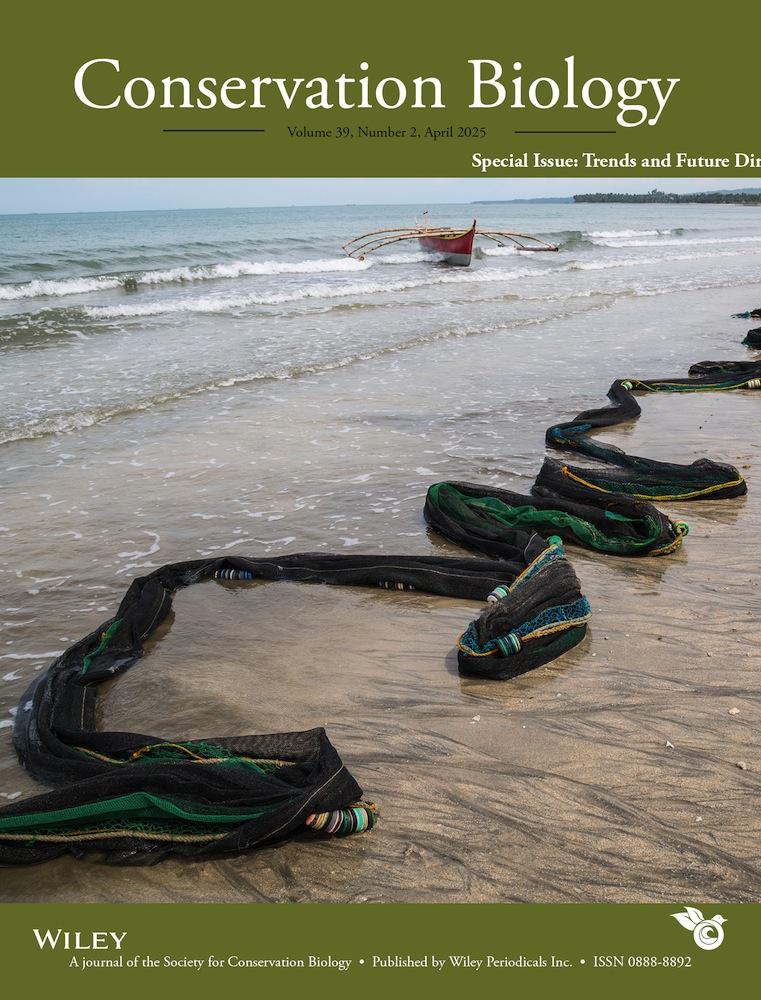
|
Sayan Banerjee Conservation and the social sciences revisited https://conbio.onlinelibrary.wiley.com/doi/10.1111/cobi.14462 Dietsch, A. M., Selinske, M. J., van Eeden, L. M., Blount‐Hill, K. L., Hauptfeld, R. S., Banerjee, S., ... & Wallen, K. E. (2025). Conservation and the social sciences revisited. Conservation Biology, 39(2), e14462. This article charts out the evolution of conservation social sciences alongside the evolution of The Social Science Working Group under Society of Conservation Biology (SCB). |

|
Sayan Banerjee Introduction: Trends and Future Directions in The Conservation Social https://conbio.onlinelibrary.wiley.com/doi/10.1111/cobi.70011 Vercammen, A., Banerjee, S., Clifton, K., Selinske, M., & Sandbrook, C. (2025). Trends and future directions in the conservation social sciences. Conservation Biology, 39(2), e70011. This is an introduction to the special issue and details out the emergent themes from the special issue. |

|
Anindya Sinha MacaqueNet: Advancing comparative behavioural research through large-scale collaboration https://besjournals.onlinelibrary.wiley.com/doi/full/10.1111/1365-2656.14223 Sinha, Anindya and Chatterjee, .Mayukh and Dhawale, Ashni Kumar and et al, . (2025) MacaqueNet: Advancing comparative behavioural research through large-scale collaboration. Journal of Animal Ecology. There is a vast and ever-accumulating amount of behavioural data on individually recognised animals, an incredible resource to shed light on the ecological and evolutionary drivers of variation in animal behaviour. Yet, the full potential of such data lies in comparative research across taxa with distinct life histories and ecologies. In this multi-author paper, we introduce MacaqueNet, a global collaboration of over 100 researchers (https://macaquenet.github.io/) aimed at unlocking the wealth of cross-species data for research on macaque social behaviour. |

|
Anindya Sinha Professor, Animal Behaviour and Cognition Programme Saving Wildlife in a Changing India https://www.epw.in/journal/2025/2/review-environment-and-development/saving-wildlife-changing-india.html Economic and Political Weekly, Volume 60, No 2, Pages 33-39 How can India balance economic ambitions, ecological integrity, and social justice? This paper seeks to unpack systemic threats to wildlife conservation, including weakened laws, a governance favouring economics over ecology, and a growing disconnect between policy and on-ground action. It critiques exclusionary policies and a growing commodification of nature, advocating for a pluriverse of inclusive, landscape-scale conservation approaches that integrate ecological resilience with community leadership. |
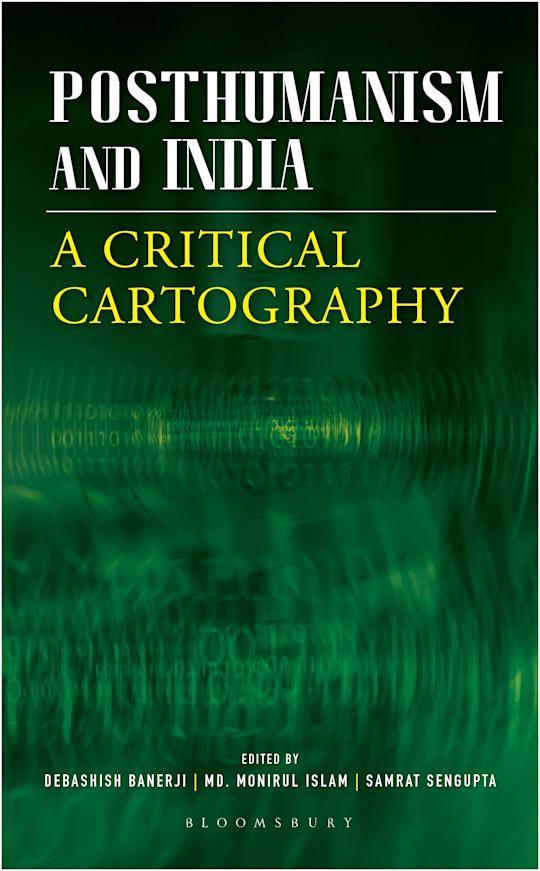
|
Anindya Sinha Being macaque: Nonhuman ethnographies of urban India https://www.bloomsbury.com/in/posthumanism-and-india-9789356404175/ Co-Authored with Maan Barua, In: Posthumanism and India: A Critical Cartography (Eds. Banerji D, Islam M M and Sengupta S). Bloomsbury Academic India, New Delhi, pp. 75-91 We are confronting, in recent times, an urgent need to investigate multispecies ethnographies of non/humans and delineate the potential of such unexplored approaches to understand the sentient lives of animals within increasingly human-dominated, ecological contexts of the Anthropocene. This is especially true for a country like India, where the close physical and emotional proximity of human and nonhuman species over thousands of years have not only led to intense interspecies behavioural exchanges and the generation of immersive and affective, more-than-human environments but also, in turn, to the slow, but irreversible, synurbisation of wild nonhuman populations in recent times. Drawing on our ongoing studies on the synurbisation of macaques, a group of remarkably adaptable nonhuman primate species, from across the country, we highlight, in this chapter, what living in drastically altered socioecological environments might mean to both macaques and humans, and, in the process, reflect on the urban ecologies of our future. |

|
Sayan Banerjee Creating constellations of coexistence through connections between people in human–wildlife conflict areas https://conbio.onlinelibrary.wiley.com/doi/10.1111/cobi.14402 Green, A. R., Chakrabarti, S., Shivakumar, S., Hughes, C., Banerjee, S., Kinyanjui, M. W., ... & Thiemkey, A. R. (2024). Conservation Biology, 38(6), e14402. This article provides arguments through case studies across the world on how culture can be a great determinant of human-wildlife coexistence |

|
Anindya Sinha Adivasi (Tea Tribe) worldviews of living close to wild Asian elephants in Assam, India https://conbio.onlinelibrary.wiley.com/doi/10.1111/cobi.14397 Banerjee, S., Nayak, D., & Sinha, A. (2024). Adivasi (Tea Tribe) worldviews of living close to wild Asian elephants in Assam, India. Conservation Biology, 38(6), e14397. The article chronicles the multifaceted relations between the Adivasi( Tea Tribe) community and the wild Asian elephants in the Udalguri district of Assam, India |

|
Sayan Banerjee Adivasi (Tea Tribe) worldviews of living close to wild Asian elephants in Assam, India https://conbio.onlinelibrary.wiley.com/doi/10.1111/cobi.14397 Banerjee, S., Nayak, D., & Sinha, A. (2024). Adivasi (Tea Tribe) worldviews of living close to wild Asian elephants in Assam, India. Conservation Biology, 38(6), e14397. The article chronicles the multifaceted relations between the Adivasi( Tea Tribe) community and the wild Asian elephants in the Udalguri district of Assam, India |

|
Anindya Sinha Engendered Primatology: of Female Primates and Feminist Primatologists https://www.aup.nl/en/book/9789048565290/gender-and-animals-in-history Co-Authored with Sayan Banerjee. In: Gender and Animals in History, Yearbook of Women's History 42, Guest Editor: Sandra Swart, Amsterdam University Press, Amsterdam, 2024, Pages: 137–156. In this chapter, we reflect on our readings of female / feminist primatologists’ studies of female primates and our understandings of the gendered lives of bonnet macaques, a female-bonded nonhuman primate species, endemic to peninsular India. These two focal points provide us with insights into the complexities of individual identity in nonhuman societies and the situatedness of human and other-than- human gender identities in their lived worlds. |

|
Anindya Sinha Structure and Functions of Gesture Sequences in Wild Bonnet Macaques (Macaca radiata) https://www.biorxiv.org/content/10.1101/2024.03.18.585581v1 Co-Authored with Shreejata Gupta. BioRxiv Preprint Nonhuman primates – mostly apes – are known to combine gestural units in non-random ways, but they do not make novel meaning with these combinations. In this paper, we investigated, for the first time, the structure and functions of gesture sequences in the naturally occurring communication of wild bonnet macaques, using analyses akin to ape gesture studies. We discuss our findings in the light of a possibility that primate gesture sequences, coordinating the flow of social interactions, may be evolutionary precursors to pragmatic gestures in human language. |

|
C P Rajendran The Rumbling Earth: The Story of Indian Earthquakes https://www.penguin.co.in/book/the-rumbling-earth/ Co-authored with Kusala Rajendran. Vintage .ISBN: 9780670095612 The renowned seismologists C.P. Rajendran and Kusala Rajendran offer a riveting story of the Indian earthquakes, their science, history and impact. Like all other natural phenomena, earthquakes are part of life-sustaining forces-- the creators of the mountains, valleys and springs or even deserts on Earth-- a theatre where the show never ends. The book takes the readers to some exciting parts of India to show how earthquakes change the topography where a sea existed not far in the past-- now a salt marsh, affecting the social life, trade and livelihood. The book discusses the likelihood of the next big earthquake in the Himalayas against the backdrop of the devastating earlier ones revealed by archaeology, history and geology. It probes the causes and aftermath of the devastating Indian Ocean tsunami of 2004 and gives a glimpse of the past. The high-impact earthquakes will happen, but they need not always end up as human catastrophes. The authors have spent much of their professional lives studying the earthquakes in India and abroad. They tell us from their vast experience how to negotiate the impacts of earthquakes and related hazards by following science-based strategies. |

|
Anmol Chowdhury A ‘South within the South’: writing from more-than-human entanglements in Guwahati, India https://www.tandfonline.com/doi/full/10.1080/14702541.2024.2324124 Co-Authored with Sneha Gutgutia, Shruti Ragavan & Shubhangi Srivastava. Scottish Geographical Journal This paper attempts to theorize from two peripheries within the Indian ‘knowledge production nexus’: one which is spatial vis-à-vis a ‘peripheral’ city; and the other which is relational vis-à-vis more-than-human relations in the city. Drawing from Southern and postcolonial urban theory and more-than-human geographies, we postulate that first, the city of Guwahati in North-East India remains a ‘South within the South’ as a site to theorize from, and second, the everyday enmeshed lives and relations of animals within this landscape remain negligible within the above-mentioned discursive nexus. In a parallel enquiry over ‘other Souths’ and ‘other lifeforms’, we explore animals’ geographies in Guwahati, finding potential in the framing of ‘entanglements’ to encapsulate varied relations with pigs, rhesus macaques, bovines, and dogs – both historically and in the contemporary. More-than-human entanglements, we contend, unveil more-than-human material, spatial, and liminal relations in the city, striated along economic, gender, caste, and class lines. Such a framing is both located and dislocated, suggestive of a comparative analytic and a plural ethic. |
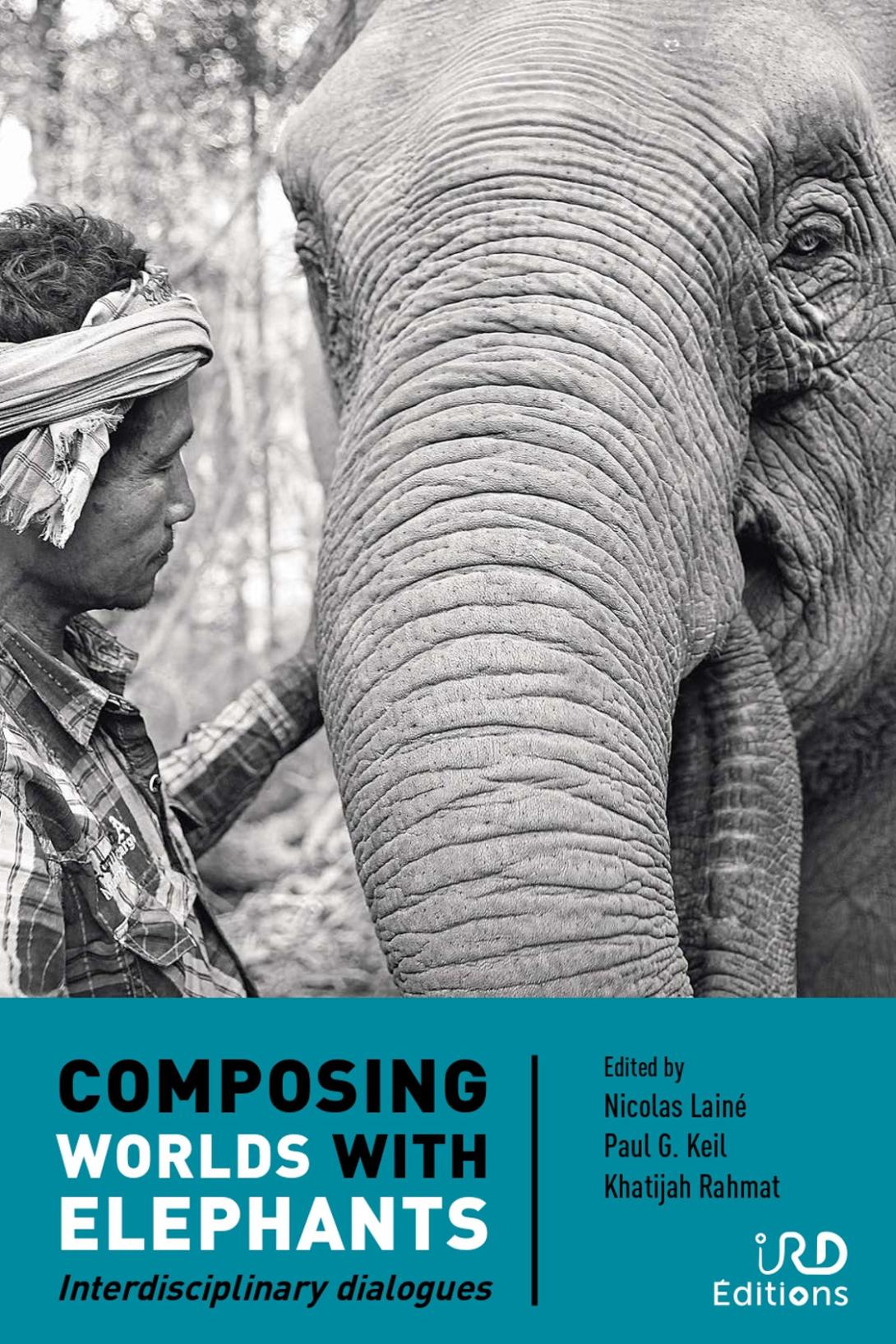
|
Anindya Sinha Nāgādhyakshaçaritha: Elephant–mahout relationships in two communities of southern India. Co-Authored with Sreedhar Vijayakrishnan, Composing Worlds with Elephants: Interdisciplinary Dialogues (Eds. Láine N, Rahmat K and Kiel P). IRD Editions, Montpellier, France, pp. 67-81. In modern India, beginning from their role as war animals, domesticated elephants have come a long way, contributing in various ways to the socioeconomic development and public life of different communities across the Indian subcontinent. In this paper, we briefly trace the unique history of mahoutry in Kerala and discuss the unique nature of this interspecies relationship in two communities, the Malayalis of Kerala and the Malasar of the Anamalai hills in the Western Ghats mountains, reflecting on the widely differing nature of the husbandry practices that have traditionally forged elephant–human relations across southern India. |

|
Anindya Sinha The outliers: An interplay of space, knowledge, and capabilities in defining human–elephant relations in rurban southern India Co-Authored with Nishant M Srinivasaiah, Composing Worlds with Elephants: Interdisciplinary Dialogues (Eds. Láine N, Rahmat K and Kiel P). IRD Editions, Montpellier, France, pp. 67-81. Hiristor and Mak, two rurban male Asian elephants, culturally more synurbised than their forest counterparts, traverse a production landscape – once a forest but now teeming with people and infrastructure – in southern India, trying to come to terms with their newly lived spaces and the novel experiences driving them. A complex interplay of space, knowledge, and capabilities has created a new generation of ‘outlier’ elephants, who have no option but to develop novel, potentially adaptive, behavioural strategies to live alongside humans. This rapid synanthropisation of the elephant populations of peninsular India, we suggest, requires an urgent realisation of the latent capabilities of both people and elephants to enable their peaceful, but vital, coexistence in the troubled times of the Anthropocene. |
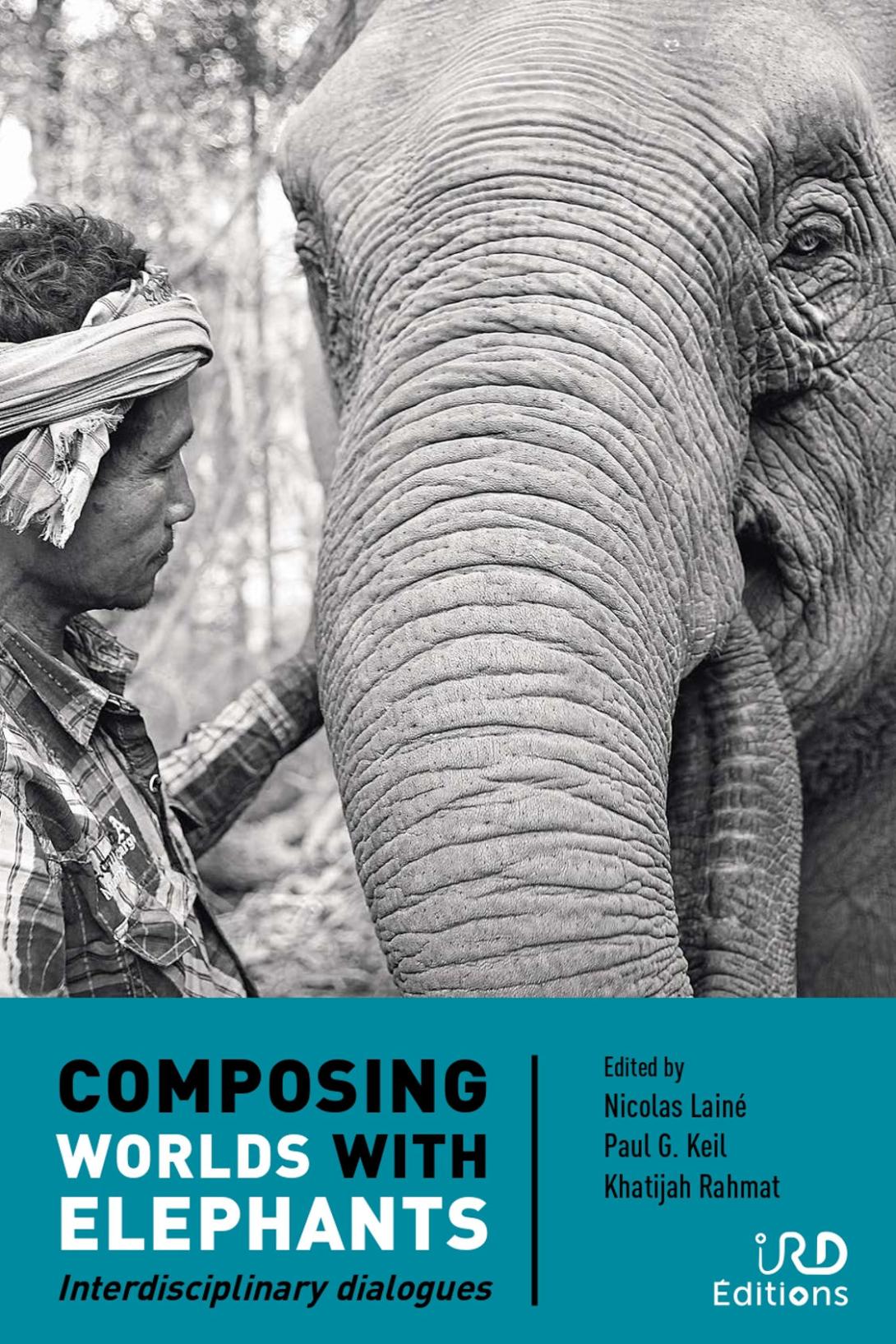
|
Anindya Sinha Political and affective ecologies of human–elephant relations: A gendered perspective. Co-Authored with Sayan Banerjee. Composing Worlds with Elephants: Interdisciplinary Dialogues (Eds. Láine N, Rahmat K and Kiel P). IRD Editions, Montpellier, France, pp. 29-47. The behavioural relations between humans and wild Asian elephants at the forest-farmland interfaces are both political and affective, and these stem from the spatio-temporal ordering of land and livelihoods, which, in turn, emanate from power negotiations between different actors, both human and nonhuman. We study how the embodied encounters between humans and wild elephants in northeastern India, manifest through the interpersonal flow of affects, shape the political decisions related to their coexistence and shared lifeworlds, and propose gender as an entry point to understand these connections closely, at least from the human perspective. |
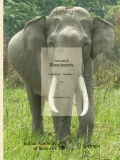
|
Anindya Sinha Winter foraging ecology of stump-tailed macaques Macaca arctoides in the Hollongapar Gibbon Sanctuary, Assam, India https://link.springer.com/article/10.1007/s12038-023-00356-0 Co-Authored with Swetha Stotrabhashyam, Narayan Sharma and Ajith Kumar. Journal of Biosciences, Volume 48, Article 30. Frugivorous primates in temperate and subtropical regions often experience a shortage or complete absence of fruits for several months of the year. In this paper, we report the winter foraging ecology of a group of stump-tailed macaques Macaca arctoides, a species considered to be vulnerable, in one of its last lowland rainforest refuges in northeastern India, during a period when the abundance of fruits was low. |

|
V V Binoy Student Scientists”: A platform for the student scientist interaction https://euraxess.ec.europa.eu/sites/default/files/domains/india/euraxess_links_india_nl_quarterly_i_issue_3_2016.pdf EURAXESS Quarterly Newsletter. PP.10 |

|
V V Binoy Science communication is not just a wartime activity https://covidscicom.org/science-communication-is-not-just-a-wartime-activity/ Covidscicom |
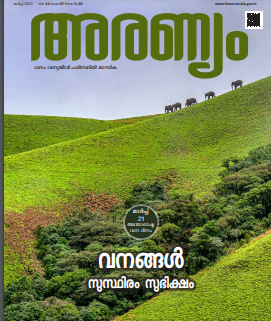
|
V V Binoy Naypunyam athijeevanathinum (Life skill for survival) https://forest.kerala.gov.in/images/publications/2022/032022.pdf Aaranyam, PP.40 |

|
V V Binoy Bridging Self, Culture and Consciousness https://link.springer.com/chapter/10.1007/978-981-10-5777-9_1 Co-Authored with Sangeetha Menon, Nithin Nagaraj. Self, Culture and Consciousness: Interdisciplinary Convergences on Knowing and Being. Springer Nature |

|
V V Binoy Autobiographical Memory: Where Self, Wellbeing and Culture Congregate https://link.springer.com/chapter/10.1007/978-981-10-5777-9_11 Co-Authored with Sangeetha Menon, Ishan Vashish, Ambika Rathore. Self, Culture and Consciousness: Interdisciplinary Convergences on Knowing and Being. Springer Nature |

|
V V Binoy Introduction: When Science Meets the Public—Bridging the Gap https://link.springer.com/chapter/10.1007/978-981-10-1025-5_1 Bridging the Communication Gap in Science and Technology: Lessons from India. Springer, Singapore |

|
V V Binoy Bridging Educational Institutions for a Citizen Science Project: A Case Study from Malappuram District, Kerala, India https://link.springer.com/chapter/10.1007/978-981-10-1025-5_20 Co-Authored with Sindhu Radhakrishna, Anitha Kurup. Bridging the Communication Gap in Science and Technology: Lessons from India. Springer, Singapore |

|
V V Binoy Inter-ecosystem variation in the food-collection behaviour in climbing perch Anabas testudineus, a freshwater fish https://doi.org/10.1101/573600 Co-Authored with Anindya Sinha, V B Rakesh. bioRxiv A unique piscine behaviour—collection and temporary storage of food materials inside the mouth during times of availability and particularly in response to starvation—has been reported in a single species, the climbing perch Anabas testudineus. In this study, we documented a significant variation in the amount of food collected by populations of climbing perch inhabiting different ecological regimes, kole paddy fields, canals and water channels in coconut plantations, after experiencing starvation for two different periods of 24 and 48 h. Our results revealed a significant flexibility in this unique behaviour, depending on the ecological conditions and hunger experienced by the individuals. |

|
V V Binoy Attitude towards COVID-19 vaccine in India: Understanding the role of health beliefs Co-Authored with Rajat Ravi Rao, Prantik Das, Roshni Ramachandran, Hrishikesh L R, Jaleel U C A, Andrew Titus Manuel. ResearchGate |

|
V V Binoy Captivity-induced behaviour and spatial learning abilities in an enigmatic, aquifer-dwelling blind eel, Rakthamichthys digressus https://doi.org/10.1101/2021.06.12.448170 Co-Authored with Tanvi Vasan, Prantik Das, Vishwanath Varma, Anjani Tiwari, Archana Prakash, Devika Manilal, Liju Thomas, C. P. Arjun, Siby Philip , Rajeev Raghavan. bioRxiv |

|
V V Binoy Landing the ‘Tiger of Rivers’: Understanding Recreational Angling of Mahseers in India using YouTube Videos https://doi.org/10.1101/2023.07.22.550129 Co-Authored with Prantik Das. bioRxiv |

|
V V Binoy Sensory cues employed for the acquisition of familiarity-dependent recognition of a shoal of conspecifics by climbing perch (Anabas testudineus Bloch) https://link.springer.com/article/10.1007/s12038-015-9529-1 Co-Authored with Anindya Sinha, Rajesh Kasturirangan. Journal of Biosciences, 40: 225–232 In this study we showed that a freshwater fish, the climbing perch (Anabas testudineus) is incapable of using chemical communication but employs visual cues to acquire familiarity and distinguish a familiar group of conspecifics from an unfamiliar one. Moreover, the isolation of olfactory signals from visual cues did not affect the recognition and preference for a familiar shoal in this species. |
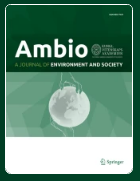
|
V V Binoy The monkey is not always a God: Attitudinal differences toward crop-raiding macaques and why it matters for conflict mitigation https://link.springer.com/article/10.1007/s13280-017-1008-5 Co-Authored with Sindhu Radhakrishna, Shaurabh Anand. Ambio 47: 711-720 Attitudinal differences toward wildlife have important implications for conflict management and when the species in question have strong cultural and religious associations, conflict mitigation becomes a challenging endeavor. We investigated farmers’ attitudes toward two different crop-raiding macaque species, the rhesus macaque in northern India, and the bonnet macaque in southern India. Apart from regional differences in attitudes, we also assessed temporal changes in attitude toward the rhesus macaque. We carried out household surveys using a semistructured questionnaire to collect data. Our findings reveal that respondents in southern and northern India differ significantly in their views regarding species sanctity and preference for mitigation options. Although people’s perceptions of the rhesus macaques had changed over time in northern India, farmers were still unwilling to cause harm to the macaques. We discuss the underlying causes of these observed differences in attitude and their impact on the management of human–macaque conflict. |

|
V V Binoy Self, Culture and Consciousness: Interdisciplinary Convergences on Knowing and Being https://link.springer.com/book/10.1007/978-981-10-5777-9 Co-Edited with Sangeetha Menon, Nithin Nagaraj. Springer This volume brings together the primary challenges for 21st century cognitive sciences and cultural neuroscience in responding to the nature of human identity, self, and evolution of life itself. Through chapters devoted to intricate but focused models, empirical findings, theories, and experiential data, the contributors reflect upon the most exciting possibilities, and debate upon the fundamental aspects of consciousness and self in the context of cultural, philosophical, and multidisciplinary divergences and convergences. Such an understanding and the ensuing insights lie in the cusp of philosophy, neurosciences, psychiatry, and medical humanities. In this volume, the editors and contributors explore the foundations of human thinking and being and discuss both evolutionary/cultural embeddedness, and the self-orientation, of consciousness, keeping in mind questions that bring in the interdisciplinary complexity of issues such as the emergence of consciousness, relation between healing and agency, models of altered self, how cognition impacts the social self, experiential primacy as the hallmark of consciousness, and alternate epistemologies to understand these interdisciplinary puzzles. |
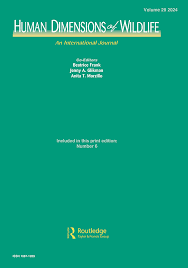
|
V V Binoy To kill or not to kill?: Factors related to people’s support of lethal and non-lethal strategies for managing monkeys in India https://www.tandfonline.com/doi/full/10.1080/10871209.2020.1856453 Co-Authored with Sindhu Radhakrishna, Paula A Pebsworth, Rupesh Gawde, Massimo Bardi. Human Dimensions of Wildlife: An International Journal 26(6): 541-558 |

|
V V Binoy V V Binoy is Bhagyasree J Ingle; is Aniket Bhattacharya, Animal Behaviour and Cognition Programme Can Living with an Alien Invasive Fish, Tilapia, Influence the Shoaling Decision-Making and Exploratory Behaviour of an Air-Breathing Freshwater Fish, the Climbing Perch? https://www.biorxiv.org/content/10.1101/839563v1 Co-authored with Bhagyasree J Ingle, Aniket Bhattacharya, Anindya Sinha, bioRxiv |

|
V V Binoy Human-Elephant Conflict in Kerala, India: a Rapid Appraisal Using Compensation Records https://link.springer.com/article/10.1007/s10745-020-00128-6 Co-Authored with Sindhu Radhakrishna, Asmita Sengupta. Human Ecology 48: 101-109 Human-wildlife conflict (HWC) is a major challenge for conservation biologists worldwide. To counter negative attitudes of people towards wildlife species, government agencies or non-governmental organizations (NGOs) frequently provide monetary compensation for losses due to crop damage or livestock depredation by wildlife. While much has been written about the challenges of using compensation schemes as a wildlife conservation tool, there has been little investigation into alternative potential benefits of compensation records. We suggest that compensation records can be used to obtain a summary overview of wildlife conflict instances that occur in a region and thereby provide an understanding of the distribution of HWC across a landscape. Further, these records provide insights on the economic prioritization given to each of the species involved in HWC and the kind of damage they cause. We tested this premise through a case study of human-elephant conflict (HEC) in districts of Kerala in southern India using state government-maintained compensation records. To this end, we constructed a conflict index and found Wayanad, Palakkad, and Kannur to be the districts most affected by HEC. An overall distribution map of HEC in any region is crucial to formulating mitigation policies for conflict management. Findings from our study, based on the compensation records, present a holistic view of conflict occurrences in Kerala and thus provide data that can be used to develop basic management strategies for HEC in the state. |
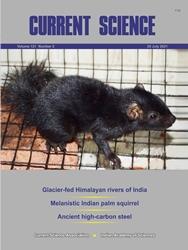
|
V V Binoy The extinction of experience in a biodiversity hotspot: rural school children's knowledge of animals in the Western Ghats, India. https://www.currentscience.ac.in/Volumes/121/02/0313.pdf Co-Authored with Anitha Kurup, Sindhu Radhakrishna. Current Science 121 (2 ): 313-316 |

|
V V Binoy Bridging the Communication Gap in Science and Technology: Lessons from India https://link.springer.com/book/10.1007/978-981-10-1025-5 Co-Edited with Pallava Bagla. Springer This first-of-a-kind volume provides a snapshot of existing science communication policy and practice in India across different S&T sectors, and offers solutions to building effective communication. It provides an understanding on how to avoid societal clashes in situations when science meets the public in these sectors. The editors and contributors argue that effective S&T communication leads not only to a more informed public but also benefits research itself, and in a changing society like India this is a crucial element related to good governance and policy making. In this volume, experienced masters of the craft provide practical solutions to making S&T communication more effective in a vast democracy like India, which has complex issues related to literacy levels, diverse languages, varying political will, reach, and resources. Through, discussions on cases of creating information modules for the public on the Internet, television and radio, social media, as well as traditional ways of outreach like people’s science movements, holding popular science events, and fairs, the volume provides highly valuable directions on how developing countries with low resources and complex populations can communicate S&T research to the public and bridge communication gaps. This volume will interest researchers from science, social science, mass communication and public relations departments, journalists, as well as practitioners and policy makers from government and non-government institutions involved in S&T policy, practice and communication and people who want to understand the complex S&T landscape of India. |
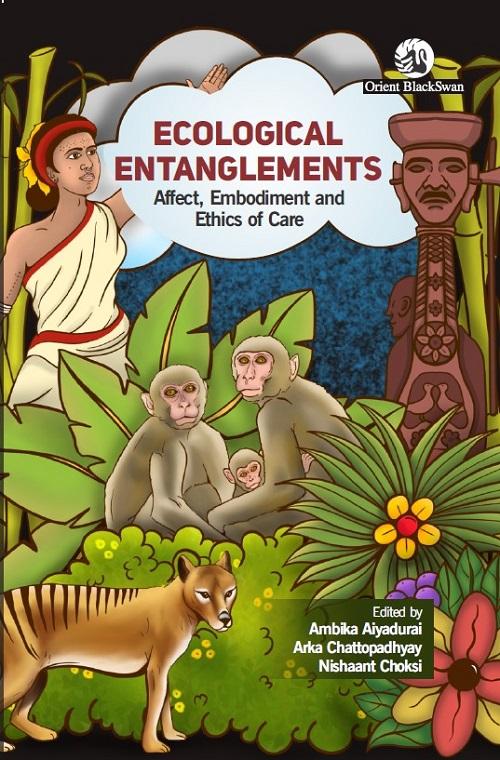
|
Anindya Sinha Ethos, Pathos, Logos: Affective and Emotive Ethnographies of Human–Macaque Lifeworlds https://orientblackswan.com/details?id=9789354422591 Co-authored with Ishika Ramakrishna and Ajith Kumar In: Ecological entanglements: Affect, embodiment and ethics of care (eds.Ambika Aiyadurai, Arko Chattopadhyay, Nishaant Choksi) Orient Black Swan, 17 April 2023 pp.15-40 |
| |
Sayan Banerjee, Anindya Sinha Reading the elephant: Affective conceptualisations of the wild Asian elephants Ecological entanglements: Affect, embodiment and ethics of care (eds.Ambika Aiyadurai, Arko Chattopadhyay, Nishaant Choksi) Orient Black Swan, The chapter talks about how people ‘read’ wild elephants’ lives affectively to engage with both elephant and human lives. |
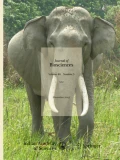
|
Anindya Sinha co-authored Professor, Animal Behaviour and Cognition Programme Far from home: The synurbisation of a rainforest-evolved primate, the lion-tailed macaque Macaca silenus, and its recent adaptations to anthropogenic habitats in southern India https://link.springer.com/epdf/10.1007/s12038-022-00306-2?sharing_token=RMGurhfNWdVmEoLbgWhBU_e4RwlQNchNByi7wbcMAY7nZCi-nHaDwBETY6x0Ta6MV-rnB_82KAsBO… Co-authored with Ashni Kumar Dhawale. Journal of Biosciences, Vol. 47 (76)
|

|
Ashni Kumar Dhawale (2017-2023) co-authored Doctoral Student, Animal Behaviour and Cognition Programme Far from home: The synurbisation of a rainforest-evolved primate, the lion-tailed macaque Macaca silenus, and its recent adaptations to anthropogenic habitats in southern India https://link.springer.com/epdf/10.1007/s12038-022-00306-2?sharing_token=RMGurhfNWdVmEoLbgWhBU_e4RwlQNchNByi7wbcMAY7nZCi-nHaDwBETY6x0Ta6MV-rnB_82KAsBO… Co-authored with Anindya Sinha. Journal of Biosciences, Vol. 47 (76)
|
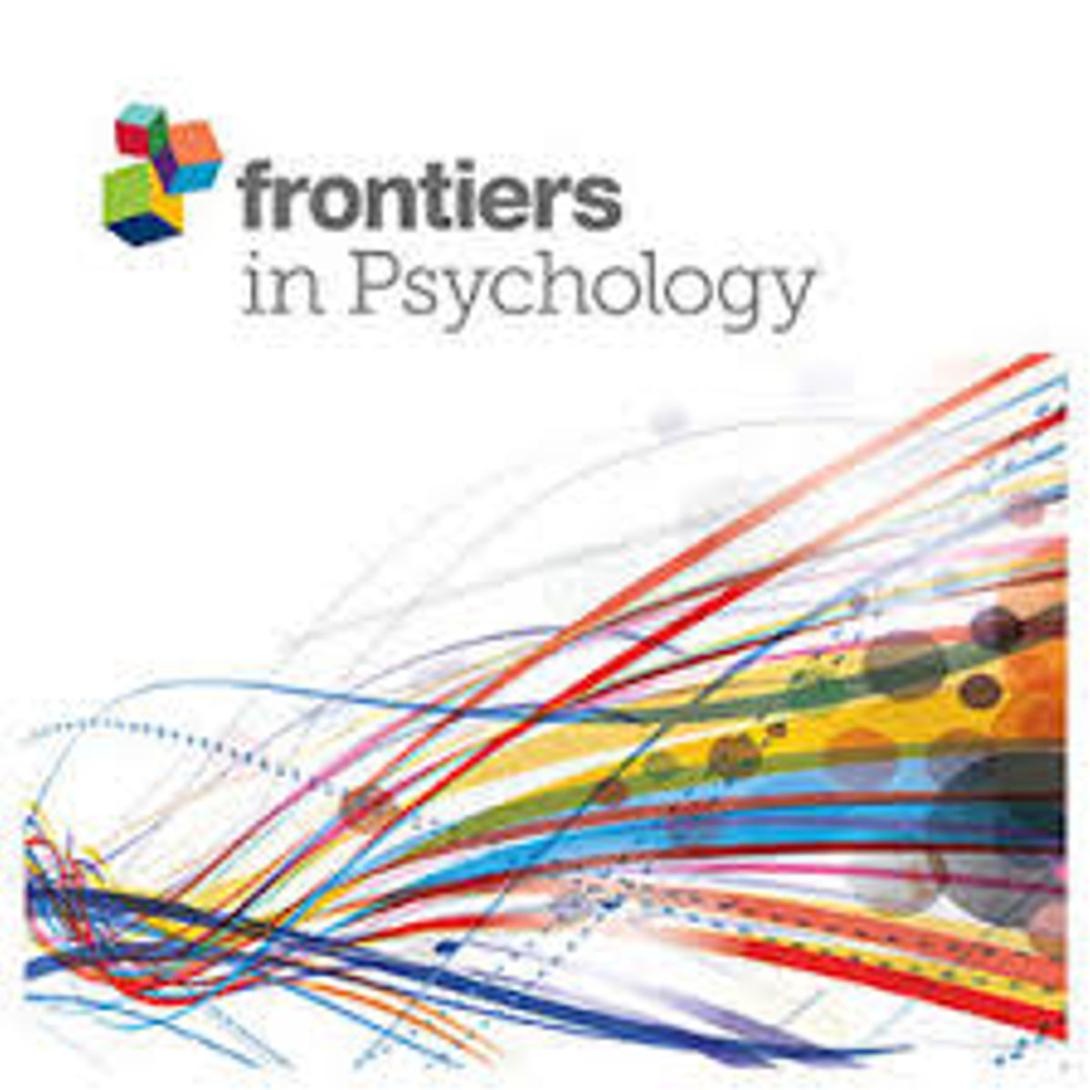
|
Anindya Sinha co-authored Professor, Animal Behaviour and Cognition Programme Blowing the lid off! Bottle-directed, extractive foraging strategies in synurbic bonnet macaques Macaca radiata in southern India Co-authored with Arijit Pal, Jean-Baptiste Leca. Frontiers in Psychology, Vol. 13, Nonhuman individuals and groups, living in anthropogenic landscapes, often adopt adaptive foraging strategies, mediated by their day-to-day interactions with humans and their artefacts. In this study, employing field experiments, we investigated an example of human-induced, extractive foraging behavior – the extraction of liquid contents from plastic bottles – in a synurbic bonnet macaque Macaca radiata population. The main aims of the study were to examine the distribution, diversity, inter-individual variability and intra-individual flexibility of bottle-directed manipulative behaviors, and to explore the social and environmental factors driving this behavioral practice. |
| Arijit Pal co-authored Research Associate, Animal Behaviour and Cognition Programme Blowing the lid off! Bottle-directed, extractive foraging strategies in synurbic bonnet macaques Macaca radiata in southern India https://www.frontiersin.org/articles/10.3389/fpsyg.2022.973566/full?utm_source=Email_to_authors_&utm_medium=Email&utm_content=T1_11.5e1_author&utm_ca… Co-authored with Jean-Baptiste Leca, Anindya Sinha. Frontiers in Psychology, Vol. 13 Nonhuman individuals and groups, living in anthropogenic landscapes, often adopt adaptive foraging strategies, mediated by their day-to-day interactions with humans and their artefacts. In this study, employing field experiments, we investigated an example of human-induced, extractive foraging behavior – the extraction of liquid contents from plastic bottles – in a synurbic bonnet macaque Macaca radiata population. The main aims of the study were to examine the distribution, diversity, inter-individual variability and intra-individual flexibility of bottle-directed manipulative behaviors, and to explore the social and environmental factors driving this behavioral practice. |
|

|
Anindya Sinha co-authored Possible Self-Awareness in Wild Adélie Penguins Pygoscelis adeliae https://www.biorxiv.org/content/10.1101/2022.11.04.515260v1 Co-authored with Prabir G Dastidar and Azizuddin Khan. BioRxiv This preliminary study has investigated the potential presence of self-awareness in a population of wild Adeìlie penguins in East Antarctica on the basis of responses and reactions of individual penguins to images, generated in mirrors, using three experimental paradigms. These appear to be the first investigations into the potential presence of self-awareness in any penguin species in their natural environment, without any prior familiarisation, conditioning or acclimatisation to the experimental paradigms employed. |

|
Anindya Sinha The Day of the Macaque https://harpercollins.co.in/product/at-the-feet-of-living-things/ In: At the Feet of Living Things: Twenty-Five Years of Wildlife Research and Conservation in India (eds. A Datta, R Arthur and T R Shankar Raman), HarperCollins Publishers India Reminiscences of three decades of my research on bonnet macaques, "the performing monkey of south India" |
| |
Sayan Banerjee Impact of wetland development and degradation on the livelihoods of wetland-dependent communities: A case study from the lower Gangetic floodplains https://trebuchet.public.springernature.app/get_content/1d88c0e6-4d81-463f-94c2-aba6396f7b53 Co-authored with Tiasa Aadhya, Wetlands, 2022, 42 (65) The article discusses people's perspective of wetland degradation due to (mal)development practices and its impact on their livelihoods and life. The study is located at a peri-urban wetland in the Lower Gangetic floodplains |
| |
Sayan Banerjee En-gendering human-wildlife interactions in Northeast India: Towards decolonised conservation https://doi.org/10.2458/jpe.5217 Co-authored with Shalini Sharma, Journal of Political Ecology, 28 (1) The article discusses the gendered implications of living close to wild Asian elephants and how gender mainstreaming in conservation practice can streamline decolonised conservation |
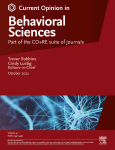
|
Anindya Sinha co-authored Beyond Food for Thought: Tool Use and Manufacture by Wild Nonhuman Primates in Nonforaging Contexts https://www.sciencedirect.com/science/article/pii/S2352154622001073 Co-authored with Arijit Pal, Current Opinion in Behavioral Sciences, Volume 47, Article No 101201 Tool use and manufacture by wild nonhuman primates in nonforaging contexts — an important indicator of their technical intelligence — is widespread across taxa, but is sporadic in occurrence, usually being displayed by one or a few individuals within a population and typically occurring in four contexts: aggression, communication and sexual display, hygiene, and in the modification of the environment. In this review, considering the relative rarity of nonforaging tool use in the wild, we recommend the development of standardised methodologies for long-term data collection under natural conditions and the establishment of novel experimental paradigms to conduct comparative studies on captive primates. |
| |
Anindya Sinha co-authored Professor, Animal Behaviour and Cognition Programme Other Societies: Social Organisation and Behaviour in Primates In: Lectures on Recent Trends in Ethology and Behavioural Sciences, John K Thomas (Ed). Irinjalakuda: Department of Zoology, Christ College, pp. 104–117 |

|
Anindya Sinha co-authored Professor, Animal Behaviour and Cognition Programme Life-history traits: ecological adaptations or phylogenetic relics? In: Macaque Societies: A Model for the Study of Social Organization, Macaque Societies: A Model for the Study of Social Organization, Bernard Thierry, Mewa Singh, and Werner Kaumanns (Eds). Cambridge: Cambridge University Press, pp. 80–83 |

|
Anindya Sinha co-authored Professor, Animal Behaviour and Cognition Programme Nature and culture in the wild: Biological foundations of behavioural traditions in non-human primates In: Nature and Culture. Roddam Narasimha and Sangeetha Menon (Eds). New Delhi: PHISPC and CSC, pp. 367–389 |

|
Anindya Sinha co-authored Professor, Animal Behaviour and Cognition Programme Affective ethnographies of animal lives In: A Research Agenda for Animal Geographies edited by Alice Hovorka, Sandra McCubbin, Lauren Van Patter. Cheltenham: Edward Elgar Publishing, pp. 129-146 |
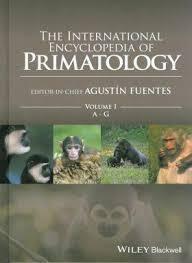
|
Anindya Sinha co-authored Professor, Animal Behaviour and Cognition Programme Primates in Urban Settings In: The International Encyclopedia of Primatology, The International Encyclopedia of Primatology, Wiley and Sons Inc, pp.1-8 |

|
Anindya Sinha co-authored Professor, Animal Behaviour and Cognition Programme The macaque connection: Cooperation and conflict between humans and macaques New York: Springer Verlag |

|
Sayan Banerjee PhD Scholar, Animal Behaviour and Cognition Programme Book Review: A fraught tale of the Mishmis, their tigers and the world beyond https://science.thewire.in/environment/book-review-tigers-are-our-brothers-mishmi-tigers-world-beyond/ The Wire Science This is a book review of Tigers Are Our Brothers: Anthropology of Wildlife Conservation in Northeast India, authored by Dr. Ambika Aiyadurai. The review discusses the key themes and takeaways from the book. |

|
Anindya Sinha co-authored Professor, Animal Behaviour and Cognition Programme The Rurban elephant: Behavioural ecology of Asian elephants in response to large-scale landuse change in a human-dominated landscape in peri-urban southern India https://link.springer.com/chapter/10.1007/978-981-16-3738-4_16 New Forms of Urban Agriculture: An Urban Ecology Perspective (Eds. Diehl J A and Kaur H). Springer Nature, Singapore, March 2022 pp. 289-310 In this chapter, we assess the impacts of such transformations on the lives of India’s largest land mammal, the Asian elephant and discuss the adaptations displayed by this species to human-induced change, with a particular focus on how the successful exploitation of rurban agricultural resources has allowed for the appearance of spatially and temporally flexible behavioural innovations that, in turn, have impacted the life-history strategies of a threatened elephant population in a peri-urban region of southern India |
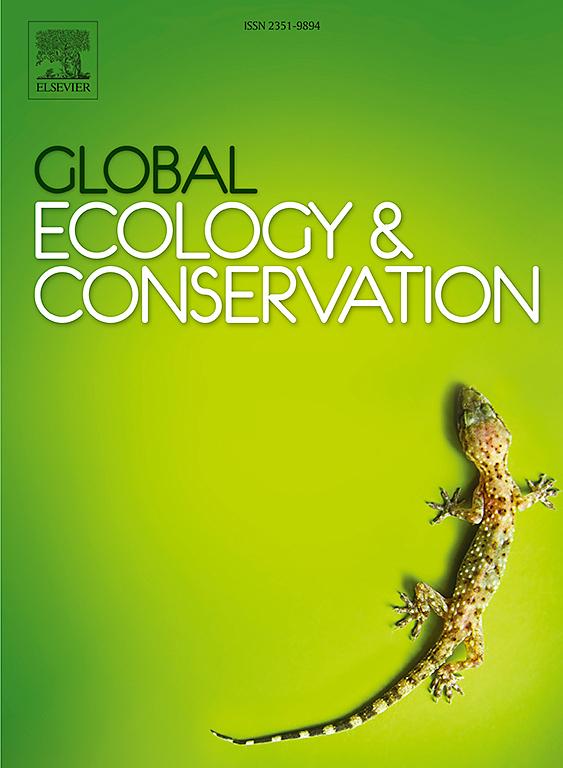
|
Anindya Sinha, Michael A Huffman co-authored The banj oak Quercus leucotrichophora as a potential mitigating factor for human-langur interactions in the Garhwal Himalayas, India: People’s perceptions and ecological importance. Global Ecology and Conservation 22: e00985. |

|
V V Binoy Big fish in small tanks: stunting in the Deccan Mahseer, Tor khudree (Sykes 1849) https://doi.org/10.1101/2020.04.04.025049 co-authored with Vishwanath Varma, Rajeev Raghavan. bioRxiv |

|
V V Binoy Is boldness in climbing perch (Anabas testudineus) sensitive to the apparatus used for the measurement? https://doi.org/10.1101/2020.07.06.189092 Co-Authored with Prantik Das. bioRxiv |
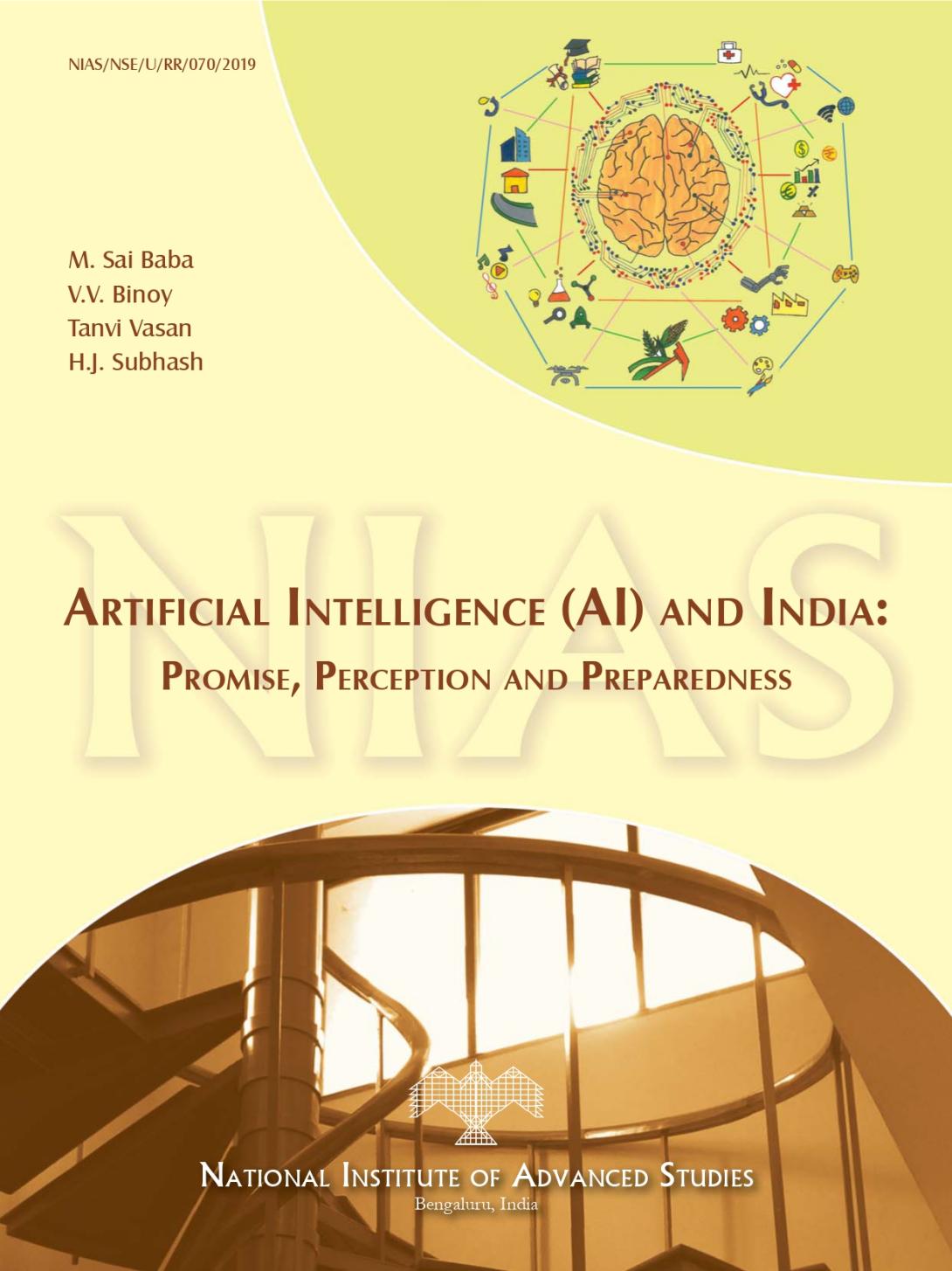
|
V V Binoy co-authored Artificial intelligence (AI) and India: promise, perception and preparedness. http://eprints.nias.res.in/1837/ Co-Authored with M Sai Baba, Tanvi Vasan, Subash H J. (NIAS Research Report No. NIAS/NSE/U/RR/070/2019). |

|
V V Binoy co-authored The load of diversity’: Cognitive load of lessons on biodiversity and classification in the biology textbooks of five different states of India. https://doi.org/10.31234/osf.io/k83cz Co-Authored with Akhila Chawadimane Machaiah, Mohammed Zeeshan, Sruthi Pilla. PsyArxiv.com/k83cz/ |

|
V V Binoy co-authored Smartphone geospatial Apps for dengue control, prevention, prediction and education: MOSapp, DISapp and the Mosquito Perception Index (MPI). https://link.springer.com/article/10.1007/s10661-019-7425-0 Journal of Environment Monitoring and Assessment, Special Issue: Geospatial Tech in Environment Health Applications 191(2): 393. |

|
Sindhu Radhakrishna co-authored Professor and Head, Animal Behaviour and Cognition Programme Janus-faced interactions: The nature of human-macaque conflicts in India. Hornbill Apr-June: 107-111. |

|
Sindhu Radhakrishna, V V Binoy co-authored Human-Elephant conflict in Kerala, India: A rapid appraisal using compensation records. Human Ecology 48: 101-109. |

|
Sindhu Radhakrishna co-authored Professor and Head, Animal Behaviour and Cognition Programme Reliability of macaques as seed dispersers American Journal of Primatology 82(5): e23115 |
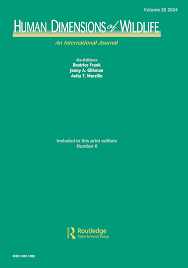
|
Sindhu Radhakrishna, V V Binoy co-authored To kill or not to kill?: Factors related to people’s support of lethal and non-lethal strategies for managing monkeys in India https://doi.org/10.1080/10871209.2020.1856453 Human Dimensions of Wildlife |

|
Sindhu Radhakrishna, Paula A Pebsworth co-authored Using conditioned taste aversion to reduce human-nonhuman primate conflict: A comparison of four potentially illness-inducing drugs Applied Animal Behaviour Science 225(104948) |

|
Sindhu Radhakrishna, Shaurabh Anand co-authored Is human–rhesus macaque (macaca mulatta) conflict in India a case of human-human conflict? Ambio 49: 1685-1696. |

|
Anindya Sinha, Anmol Chowdhury co-authored Anindya Sinha is Professor; Anmol Chowdhury is Doctoral Student, Animal Behaviour and Cognition Programme Affective ethnographies of animal lives In: A Research Agenda for Animal Geographies edited by Alice Hovorka, Sandra McCubbin, Lauren Van Patter. Cheltenham: Edward Elgar Publishing, pp. 129-146. |

|
Anmol Chowdhury, Sneha Gutgutia co-authored Tharangini- The oldest surviving hand-block printing studio in Bangalore. Vikalp Sangam, 7 June 2019. |
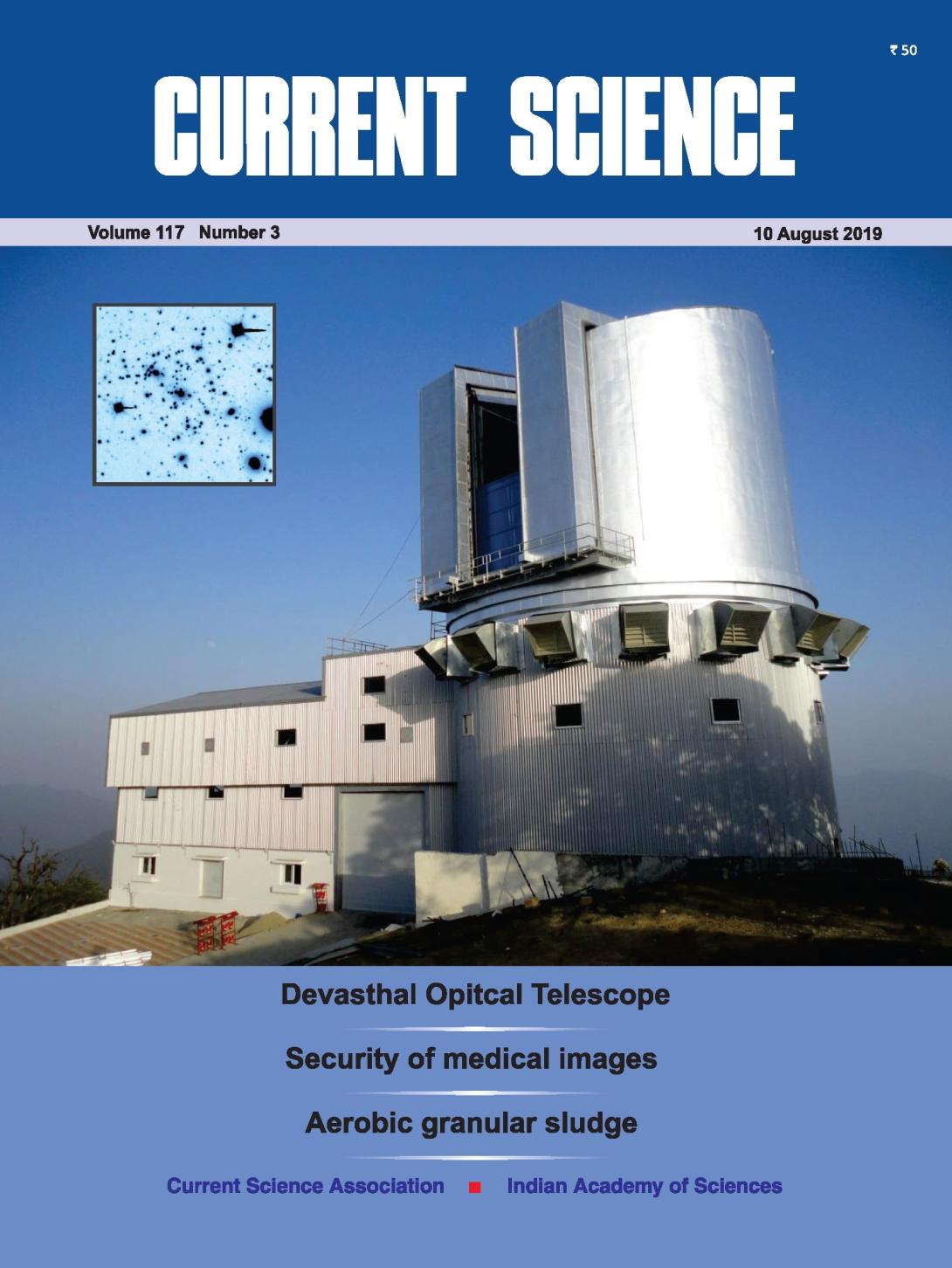
|
Anindya Sinha Professor, Animal Behaviour and Cognition Programme Ramesh Maheshwari (1940–2019). Current Science 117: 524-525. |

|
Anindya Sinha co-authored Professor, Animal Behaviour and Cognition Programme An action plan for the control of commensal, non-human primates in public places Zoo’s Print 34: 1-13. |

|
Anindya Sinha co-authored Professor, Animal Behaviour and Cognition Programme All-male groups in Asian elephants: A novel, adaptive social strategy in increasingly anthropogenic landscapes of southern India. Scientific Reports 9: 8678. |

|
Anindya Sinha, V V Binoy co-authored Inter-ecosystem variation in the food-collection behaviour of climbing perch Anabas testudineus, a freshwater fish. https://doi.org/10.1101/573600 bioRxiv 573600 |

|
Anindya Sinha, Shreedhar Vijayakrishna co-authored Professor, Animal Behaviour and Cognition Programme Human-captive elephant relationships in Kerala: Historical perspectives and current scenarios. Gajah 50: 29-35. |
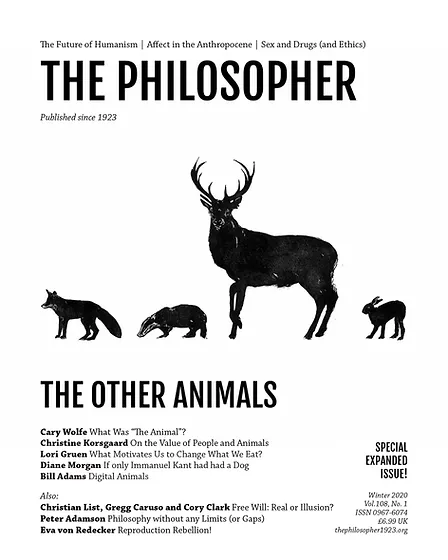
|
Anindya Sinha co-authored Professor, Animal Behaviour and Cognition Programme Nonhuman lifeworlds in urban India. The Philosopher 108: 22-27. |

|
Anindya Sinha Professor, Animal Behaviour and Cognition Programme Sharing from the same bowl: Resource partitioning between sympatric macaque species in the Western Himalaya, India. International Journal of Primatology 40: 356-373. |

|
Anindya Sinha, Shreejata Gupta co-authored Professor, Animal Behaviour and Cognition Programme Gestural communication of wild bonnet macaques in the Bandipur National Park, southern India. Behavioural Processes 168: 103956. |
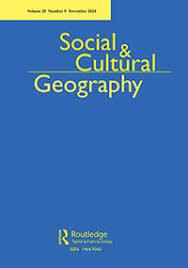
|
Anindya Sinha co-authored Professor, Animal Behaviour and Cognition Programme Animating the urban: An ethological and geographical conversation. Social and Cultural Geography 20: 1160-1180. |

|
Anindya Sinha Professor, Animal Behaviour and Cognition Programme Elephants on the move: Implications for human-elephant interaction. IIC Quarterly 46: 100-113. |
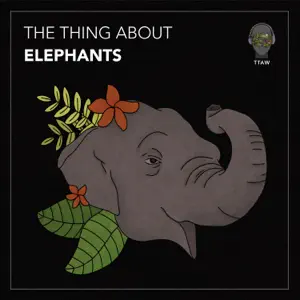
|
Anindya Sinha, Nishant M Srinivasaiah co-authored Professor, Animal Behaviour and Cognition Programme The elephant in the city: The trialectics of space in the rurban elephants of southern India. Position Paper, Spaces of Living in Transformation—In Times of Uncertainty, Urban Environments Initiative, Rachel Carson Center, Ludwig Maximilian University, Munich, Germany |

|
Anindya Sinha co-authored Professor, Animal Behaviour and Cognition Programme Macaca munzala. The IUCN Red List of Threatened Species 2020: e.T136569A17948833. |
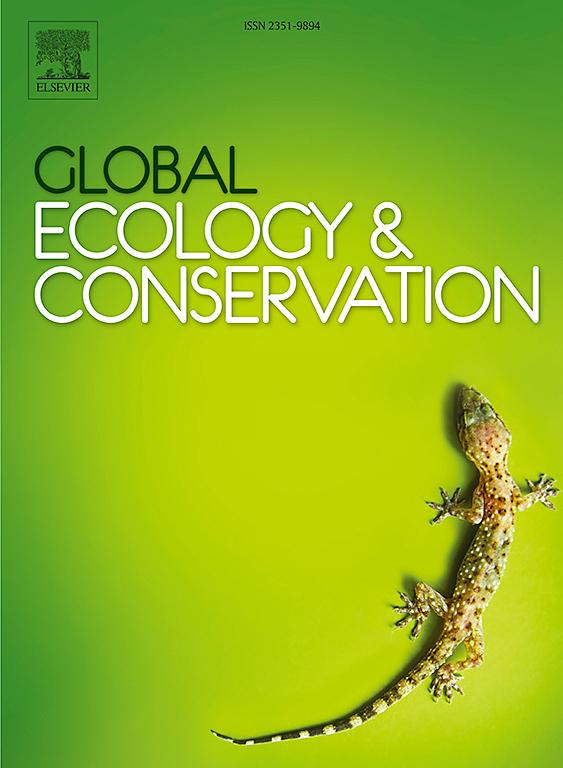
|
Anindya Sinha co-authored Professor, Animal Behaviour and Cognition Programme The banj oak Quercus leucotrichophora as a potential mitigating factor for human-langur interactions in the Garhwal Himalayas, India: People’s perceptions and ecological importance. Global Ecology and Conservation 22: e00985. |
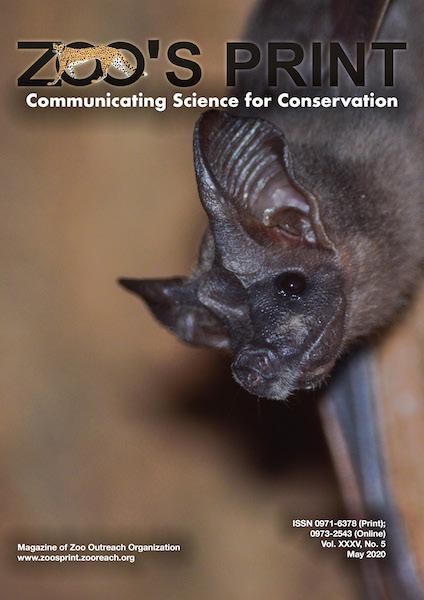
|
Anindya Sinha co-authored Professor, Animal Behaviour and Cognition Programme The devil is in the detail' Peer-review of the Wildlife Conservation Plan by the Wildlife Institute of India for the Etalin Hydropower Project, Dibang Valley, Zoo’s Print 35(5): 1-78. |
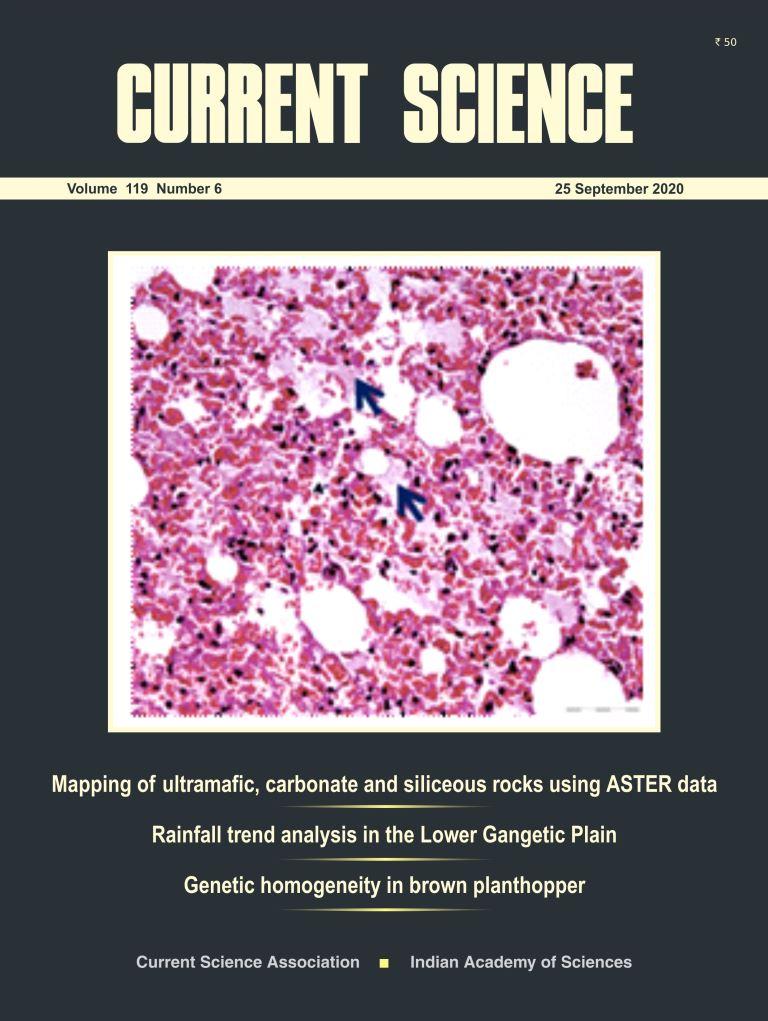
|
Anindya Sinha co-authored Professor, Animal Behaviour and Cognition Programme Chronic extraction of forest resources is threatening a unique wildlife habitat of Upper Brahmaputra Valley, northeastern India Current Science 119(6): 1042-1045. |
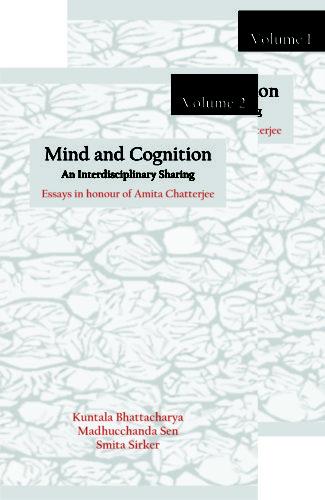
|
Anindya Sinha Professor, Animal Behaviour and Cognition Programme Silent words: Semiotic assemblages as bridges to the semantics-pragmatics divide in communication. In: Mind and Cognition: An Interdisciplinary Sharing. Essays in Honour of Prof Amita Chatterjee Volume 1 edited by Kuntala Bhattacharya, Madhucchanda Sen and Smita Sirker. New Delhi: D K Printworld, pp. 371-389 |

|
Ashni Kumar Dhawale (2017-2023), Anindya Sinha, M Ananda Kumar Ashni Kumar Dhawale (2017-2023) is PhD Scholar; Anindya Sinha is Professor, Animal Behaviour and Cognition Programme Changing ecologies, shifting behaviours: Behavioural responses of a rainforest primate, the lion-tailed macaque Macaca silenus, to a matrix of anthropogenic habitats in southern India https://journals.plos.org/plosone/article?id=10.1371/journal.pone.0238695 PLoS One, September 2020 This study highlights the importance of understanding behavioural changes displayed by animals in response to human interactions; such knowledge could be crucial for the planning and implementation of management and conservation strategies for endangered species such as the lion-tailed macaque and possibly other wildlife in the increasingly anthropogenic landscapes of the tropical world. |

|
Anindya Sinha co-authored Professor, Animal Behaviour and Cognition Programme Elephants on the Move: Implications for Human-Elephant Interactions https://www.taylorfrancis.com/chapters/edit/10.4324/9781003216612-10/elephants-move-nishant-srinivasaiah-srinivas-vaidyanathan-raman-sukumar-anindya-… Book chapter: The Crisis of Climate Change: Weather Report, Routledge India, New Delhi, 2021 To survive and persist in fragmented, human-dominated landscapes, especially in the Anthropocene, elephants often need to modify their behavior. In this chapter, using empirical data, the authors assess the behavioral adaptability of elephants, as determined by their innate biological variables, such as age, sex, and grouping patterns at the population level, and discuss the impacts of global climatic changes on the behavior and distribution of Asian elephants, as evidenced through their own studies. |
| |
Sindhu Radhakrishna, V V Binoy co-authored Sindhu Radhakrishna is Professor and Head; V V Binoy is Associate Professor, Animal Behaviour and Cognition Programme To kill or not to kill?: factors related to people’s support of lethal and non-lethal strategies for managing monkeys in India https://www.tandfonline.com/doi/abs/10.1080/10871209.2020.1856453?journalCode=uhdw20 Human Dimensions of Wildlife, December 2020 This study investigated factors related to people’s choice of conflict mitigation strategies against commensal monkey species in two regions in india. |
| |
V V Binoy co-authored Social decision making is influenced by size of shoal but not boldness, sociability or familiarity in Deccan mahseer (Tor khudree) https://doi.org/10.1080/10236244.2020.1838244 Co-Authored with Vishwanath Varma, Abhishek Singh, Jintu Vijayan. Marine and Freshwater Behaviour and Physiology 53(5-6):231-250. Many piscine species form fission-fusion societies where decisions to leave or join a shoal are influenced by factors such as shoal size, familiarity and species. Individuals exhibit distinct shoaling preferences based on behavioural traits such as boldness and sociability. In this study, we examined the link between shoaling decisions and behavioural traits in a hatchery reared population of an endangered megafish, the Deccan mahseer (Tor khudree). We found that this fish exhibits preference for larger shoals when presented with choices of 2 vs 4 and 2 vs 8 shoal sizes. However, no preference for isolated familiar or unfamiliar conspecifics over invasive heterospecifics was observed. Moreover, individual shoaling preferences did not correlate with their boldness or sociability. These results suggest that juvenile hatchery reared mahseers reintroduced into natural habitats may shoal with invasive species and modifying their social behaviour by amending rearing practices could improve outcomes of restocking interventions. |
| |
Sindhu Radhakrishna co-authored Professor and Head, Animal Behaviour and Cognition Programme Reliability of macaques as seed dispersers https://onlinelibrary.wiley.com/doi/10.1002/ajp.23115 American Journal of Primatology, February 2020 This paper proposes a practical framework to assess the spatial reliability of frugivores as seed dispersers and posits that it is essential to maintain viable populations of macaques across their range and keep human interventions at a minimum to ensure that they continue to reliably disperse the seeds of a broad range of plant species in the Anthropocene. It further suggests that this framework be used for assessing the spatial reliability of other taxonomic groups as seed dispersers. |
| |
Sindhu Radhakrishna co-authored Professor and Head, Animal Behaviour and Cognition Programme What does human-animal studies have to offer ethology? https://link.springer.com/article/10.1007%2Fs10211-020-00349-4 Acta Ethologica, July 2020 Although animals are the primary focus of studies in human-animal studies (HAS), very few ethologists engage with this discipline. Insights from HAS can help provide a deeper and richer understanding of animal behaviour and humananimal interactions. HAS perspectives regarding animal and human spaces, the sociozoological scale theory, and the concepts of animal agency and intersubjectivity in human-animal interactions help demystify puzzling aspects of human-wildlife conflict scenarios and impel a re-examination of ethological dictums and methodologies. We argue that inputs from human-animal studies will aid in the growth of ethology. |
| |
Sindhu Radhakrishna co-authored Professor and Head, Animal Behaviour and Cognition Programme Is human–rhesus macaque (Macaca mulatta) conflict in India a case of human–human conflict? https://link.springer.com/article/10.1007%2Fs13280-020-01324-w Ambio, March 2020 The authors have studied the attitudes and perceptions of forest department personnel regarding the management of human-rhesus macaque conflict (HRMC) in Himachal Pradesh, northern India. |
| |
Sindhu Radhakrishna co-authored Professor and Head, Animal Behaviour and Cognition Programme The human–primate interface in the New Normal: Challenges and opportunities for primatologists in the COVID‐19 era and beyond https://www.ncbi.nlm.nih.gov/pmc/articles/PMC7404331/ American Journal of Primatology, August 2020 In this commentary, authors identified challenges and opportunities at human-primate interfaces in light of COVID-19, focusing on examples from Asia, and make recommendations for researchers working with wild primates to reduce zoonosis risk and leverage research opportunities. |
| |
Sindhu Radhakrishna co-authored Professor and Head, Animal Behaviour and Cognition Programme Using conditioned taste aversion to reduce human-nonhuman primate conflict: A comparison of four potentially illness-inducing drugs https://www.sciencedirect.com/science/article/abs/pii/S016815912030023X?casa= Applied Animal Behaviour Science, April 2020 This study deals with human-wildlife conflict in the form of crop-and livestockdepredation and exploits Conditioned Taste Aversion (CTA) strategy, a non-lethal and effective method to control crop damage caused by vertebrate pests, to reduce crop damage. |
| |
Anindya Sinha co-authored Professor, Animal Behaviour and Cognition Programme Elephants on the Move: Implications for Human–Elephant Interactions https://www.taylorfrancis.com/chapters/edit/10.4324/9781003216612-10/elephants-move-nishant-srinivasaiah-srinivas-vaidyanathan-raman-sukumar-anindya-… India International Centre (IIC) Quarterly, 2020 In this chapter, using empirical data, the authors assess the behavioural adaptability of elephants, as determined by their innate biological variables, such as age, sex and grouping patterns at the population level. They also discuss the impacts of global climatic changes on the behaviour and distribution of Asian elephants, as evidenced through studies conducted on these aspects. |
| |
V V Binoy co-authored Associate Professor, Animal Behaviour and Cognition Programme The Bold are the Sociable’: Personality traits and laterality in an indigenous megafish, the Deccan Mahseer (Tor khudree) https://link.springer.com/article/10.1007/s10228-020-00744-8#:~:text=The%20present%20study%20explored%20the,of%20central%20and%20southern%20India. Co-Authored with Vishwanath Varma, Harsh Vasoya, Anushka Jain. Ichthyological Research 67: 483–492 The present study explored the relationships between the personality traits boldness, activity, exploration, and sociability, and lateralized utilisation of brain hemispheres in the hatchery-reared juveniles of Deccan Mahseer (Tor khudree), an endangered megafish inhabiting the rivers of central and southern India. |
| |
Anindya Sinha co-authored Professor, Animal Behaviour and Cognition Programme The Elephant in the Room: Methods, challenges and concerns in the monitoring of Asian elephant populations https://www.researchgate.net/publication/344546828_The_Elephant_in_the_Room_Methods_challenges_and_concerns_in_the_monitoring_of_Asian_elephant_popul… Gajah 52, October 2020 Increasing anthropogenic pressures has led to the fragmentation of Asian elephant habitats, affecting their numbers, demography and ranging patterns across their range. Baseline information on the demography and population dynamics of free-ranging Asian elephants is often unavailable. Population monitoring at the landscape level has many constraints, including those of visibility, habitat, terrain and field logistics, among several others. While knowing elephant numbers may be important for managing local populations, demographic parameters and distribution patterns are perhaps more crucial to ascertain long-term trends for conservation. |
| |
Anindya Sinha co-authored Professor, Animal Behaviour and Cognition Programme Chronic extraction of forest resources is threatening a unique wildlife habitat of the Upper Brahmaputra Valley, northeastern India https://www.researchgate.net/profile/Narayan-Sharma-5/publication/344364886_Chronic_extraction_of_forest_resources_is_threatening_a_unique_wildlife_h… Current Science, September 2020 This study examines the extent and nature of harvest of non-timber forest products (NTFP) by local human communities residing adjacent to the Hollongapar Gibbon Sanctuary in the Upper Brahmaputra Valley of Assam, northeastern India. |
| |
Sindhu Radhakrishna co-authored Professor and Head, Animal Behaviour and Cognition Programme Why do people visit primate tourism sites? Investigating macaque tourism in Japan and Indonesia https://link.springer.com/article/10.1007/s10329-021-00951-5 Primates, October 2021 This study presented two case studies—the Jigokudani Monkey Park, Japan, and the Telaga Warna Nature Recreational Park, Indonesia—where the authors provided quantitative assessments of people’s motivations for visiting managed (monkey parks) and unmanaged (incidental) monkey tourism sites. They further showed that management regimes, socio-demographic attributes, previous experience of interactions with macaques, and feeding them play a role in people’s desire to visit macaque tourism sites. |
| |
Anindya Sinha, Anmol Chowdhury, Nitesh S Anchan co-authored Anindya Sinha is Professor; Anmol Chowdhury is PhD Scholar; Nitesh S Anchan is PhD Scholar, Animal Behaviour and Cognition Programme Affective ethnographies of animal lives https://www.elgaronline.com/view/edcoll/9781788979986/9781788979986.00016.xml A Research Agenda for Animal Geographies, January 2021 In this chapter, the authors investigated the affective ethnographies of non/humans and delineate what this offers for an understanding of animals’ geographies or the sentient lives of animals within wider social and political ecological contexts. |
| |
Anindya Sinha co-authored Professor, Animal Behaviour and Cognition Programme Mental health ecologies and urban wellbeing https://www.sciencedirect.com/science/article/pii/S1353829221000733 Health & Place, May 2021 This paper discusses mental health ecologies in different registers: subjectivity being environmental, its scale being relational rather than binary, enmeshed in the dynamics of other-than-human life, and involving conversations between medical and vernacular practices rather than hierarchies of knowledge. |
| |
Anindya Sinha co-edited Professor, Animal Behaviour and Cognition Programme Elephants on the Move https://www.taylorfrancis.com/chapters/edit/10.4324/97810032166 The Crisis of Climate Change, September 2021 In this chapter, using empirical data, the authors assess the behavioural adaptability of elephants, as determined by their innate biological variables, such as age, sex and grouping patterns at the population level. They also discuss the impacts of global climatic changes on the behaviour and distribution of Asian elephants, as evidenced through studies conducted on these aspects. They discuss how elephants, in general, avoid areas of high human use. |
| |
Sindhu Radhakrishna, V V Binoy co-authored Sindhu Radhakrishna is Professor and Head; V V Binoy is Associate Professor, Animal Behaviour and Cognition Programme The extinction of experience in a biodiversity hotspot: rural school children’s knowledge of animals in the Western Ghats, India https://www.currentscience.ac.in/Volumes/121/02/0313.pdf Current Science, July 2021 This study is conducted in a biodiversity hotspot in southern India to examine the knowledge level of rural school children regarding the mammalian species in their region. The results of the study showed that school children were able to recognize regional mammalian species that are publicized by media sources, but had little knowledge about their conservation status or more significant information about them. |
| |
Anindya Sinha, Sayan Banerjee co-authored Anindya Sinha is Professor; Sayan Banerjee is PhD Scholar, Animal Behaviour and Cognition Programme ‘The devil is in the detail’: Peer-review of the wildlife conservation plan by the Wildlife Institute of India for the Etalin hydropower project, Dibang valley. https://zoosprint.zooreach.org/index.php/zp/issue/view/540/showToc Zoo’s Print, May 2020 This report was prepared in response to the Forest Advisory Committee’s (FAC) recommendation to conduct “a multiple seasonal replicate study on biodiversity assessment” of the 3097 MW Etalin Hydro Electric Project (HEP) in Dibang Valley, Arunachal Pradesh. The review has found that the study was conducted in under five five months from February to June 2018 and cannot be considered as a ‘multiple seasonal replicate’ study as it does not represent three seasons in Arunachal Pradesh. |
In keeping with the mandate of the Institute, the Programme members have always considered outreach to be an important component of their professional activities. The goal behind engaging in outreach activities is to bring to popular attention the import of research carried out by the Programme, train young students in research methodology related to ecology, animal behaviour and cognition, and disseminate results of research in public forums.
Outreach activities include training workshops for students and lay citizens, popular articles, media reports and interviews, lectures in professional forums and talks.
Over the course of the past year Programme members taught courses or gave lectures in courses on the Philosophy of Science and Conservation, Social Cognition and Consciousness in Primates, Basic Primatology, Behavioural Ecology, Consciousness, Cognition and Collective Intelligence, Research and Publication Ethics, Human-Environment Interactions, and Methods in Ethology.
Programme members’ work on human-primate interactions was widely reported in the media, chiefly, The Hindu, the Times of India, The Wire and Roundglass Sustain.
